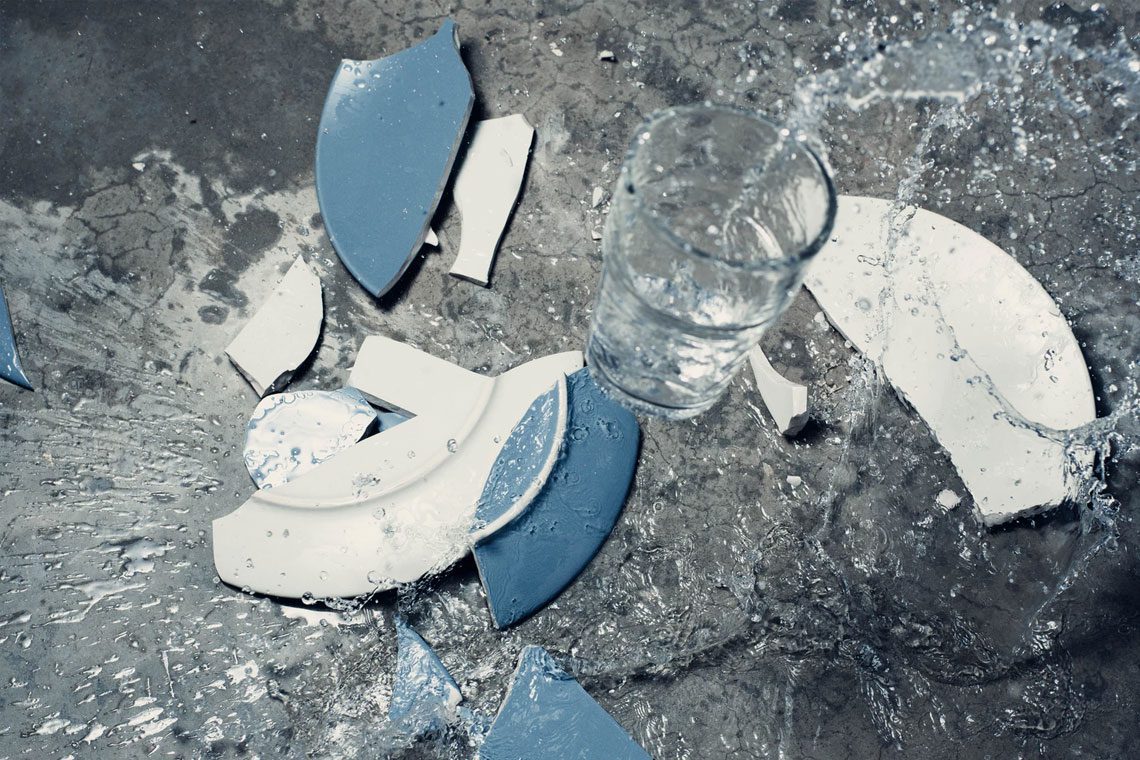
What to do when guests damage your Airbnb
Airbnb guests’ damage, is a sensitive subject for all owners. Most Airbnb hosts & owners are very proud of their vacation rentals. They’ve spent time and money decking the place out with furniture and fittings. They’ve re-painted, laid new carpet, put artwork on the walls and nice rugs on the floors. They may have even invested in brand new electrical appliances. So what happens when a host opens the door of their property to discover it has been damaged by a guest?
How can you protect yourself from financial losses when it comes to accidents that might happen in your rental space? How should you approach the damage control?
Table of contents
- Mishaps are part of life
- What does ‘serious damage’ mean?
- Handling guests when things go wrong
- Protecting yourself
- Documentation and Reporting
1. Mishaps are part of life
No matter how clean and careful you are in your own home – or how immaculately you arrange and clean the space for new guests, you need to accept that not every traveller will treat your Airbnb with as much respect as you do.
Some folks are clumsy in the kitchen… they might leave you with a broken plate. Some guests will be travelling with children… they might leave you with greasy fingerprints on your glass sliding doors.
Some people will wear their shoes inside… they might leave you with dirty marks on the carpet. These things might disappoint and anger you – but in the overall scheme of things, they are probably not worth making a big deal about.
There’s also the issue of ‘wear and tear’ that needs to be taken into consideration. For example, if a guest spills a small amount of red wine on your carpet but that carpet is old and already covered in stains – do you really have grounds to be upset?
How can you protect yourself from financial losses when it comes to accidents that might happen in your Airbnb?
Examples of wear and tear:
- Minor scuff marks on the walls from moving luggage in and out of hallways
- Old furniture or appliances breaking
- Make-up residue left on hand towels or face washers
- Limescale around the walls of the shower
- Tears in ageing rugs or curtains
2. What does ‘serious damage’ mean?
There are cases that are very black and white when it comes to damage to your Airbnb property. For example, if a guest knocks over a bottle of nail polish onto your sofa. Or if they drop something heavy that makes a hole in your floorboards.
Maybe they reverse their car over your newly landscaped garden. Or they steal something that belongs to the property – like an electrical good.
3. Handling guests when things go wrong
It’s not unusual for guests to contact a host the minute they break or damage something – notifying them of what has taken place and offering to pay. But what should you do if that doesn’t happen or if the amount they offer to pay is not enough to cover the damage?
First of all, always communicate issues with guests using the Airbnb platform. This helps Airbnb track what’s going on between both parties. Start off by getting in touch with your guest and politely asking what happened and if they are willing to pay for damages. This could lead to a resolution that both parties are happy with.
Failing that, head to the Airbnb resolution centre to lodge an official complaint. You might want to also read our blog about damage control.
4. Protecting yourself
A thorough inventory – Write a list of all the items in your place (from lamps to lounge chairs – from bed linen to bathroom accessories) and also take note of the conditions of floor coverings, walls, outdoor areas and entranceways.
Take photos to support your inventory list and keep dated records of this kind of information. Update those photos over time so you can keep track visually of the wear and tear.
Vetting guests – There are several ways to protect yourself as a host. Choosing the right kind of guests – ones who you feel will cherish your home as if it were their own – is one sure way to avoid a nasty dispute over damage to property. Feel free to read out the blog about vetting guests.
- Removing valuables – It might sound like common sense but we always remind hosts to take anything of sentimental or real-world value out of their rental property to avoid damage or theft. This includes photo albums, banking and tax documents, family heirlooms and antiques.
- Airbnb Security Deposit – You can also submit a claim up to 14 days after your guest checks out through the Airbnb Security Deposit. To activate, go to Manage Your Space > Pricing > Security Deposit.
- Host Guarantee – It’s also worth noting that if the damage caused equals an amount higher than the security deposit, you are covered by the Airbnb host guarantee. The Host damage protection doesn’t cover cash and securities, collectables, rare artwork, jewellery, pets or personal liability.
- Additional Airbnb insurance – If you want total peace of mind, it’s best you take out comprehensive insurance that will cover any kind of loss or damage to your vacation rental. Check out some of our premium packages which offer this kind of insurance.
GuestReady is an Airbnb management service that provides a range of support to hosts – including advice when things go wrong.
If you want help in handling mishaps or managing the expectations of guests, contact our friendly team today to find out more about how we can make life easier for you.
5. Documentation and Reporting
If damage occurs, document it immediately. Take clear photos or videos of the damaged items or areas. This will be crucial when making a claim or discussing the issue with the guest.
- Repair Estimates: Acquire estimates for repairs or replacements. This provides a clear picture of the cost involved and helps when negotiating with guests or making a claim through Airbnb.
- Keep Receipts: Whether for repairs or replacements, always retain copies of your receipts. They can act as evidence if there are disputes regarding the cost.
Hosting on Airbnb comes with its rewards and challenges, one of which is the potential for property damage. As a host, it’s vital to be proactive, from vetting guests to setting clear house rules and regularly documenting your property’s condition.
By employing preventative measures and understanding Airbnb’s support mechanisms, hosts can navigate such situations with confidence and minimal hassle. Remember, while accidents are inevitable, being prepared ensures the longevity of your hosting experience.

